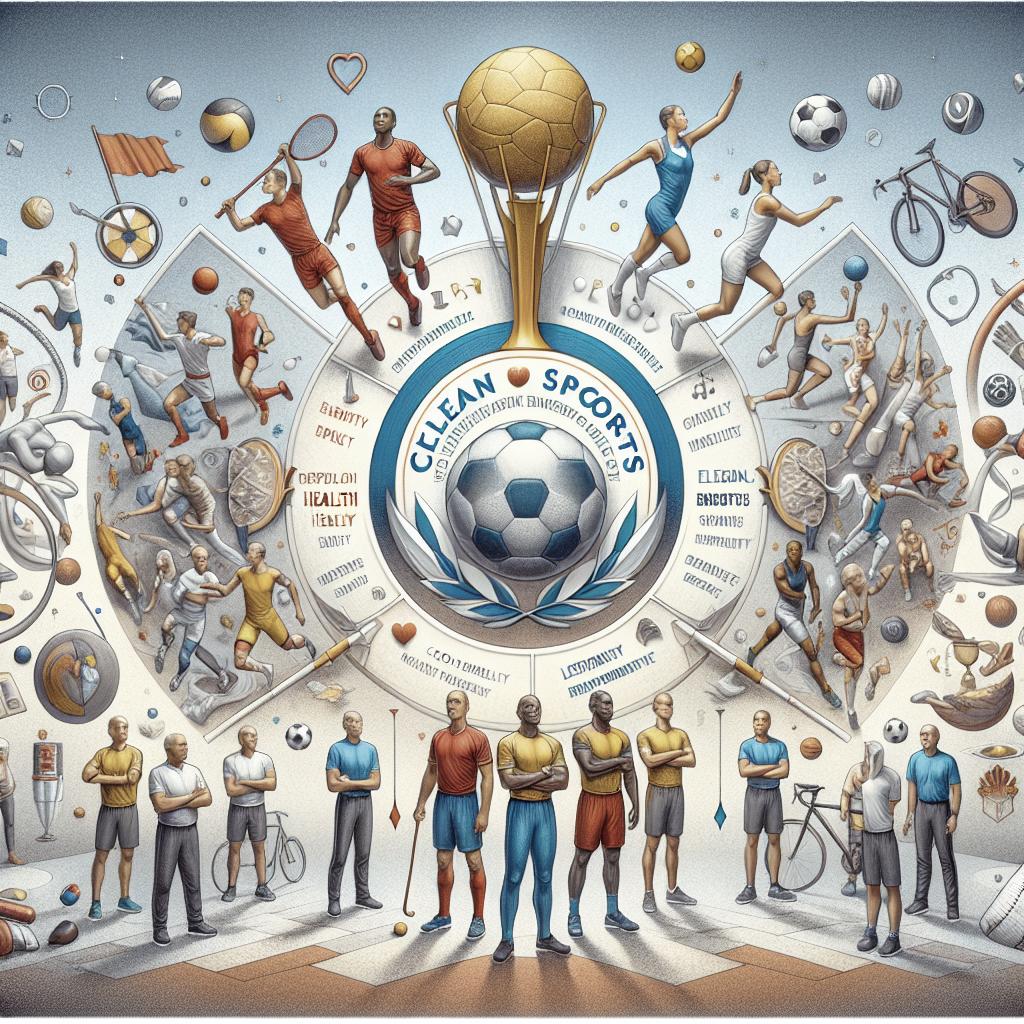<>
—
Encouraging Clean Sports in Youth Sports Leagues
Youth sports act as the bedrock for nurturing future athletes and instilling essential values in the younger generation. However, the prevalence of unethical practices and doping is a growing concern that needs addressing for the betterment of both individuals and the broader sporting community. This blog post delves into what constitutes clean sport, the significance of whistleblowers, actionable strategies for fostering a cleaner and more positive sports culture, and the resources available for those keen on making a positive difference. Through comprehensive research and practical insights, this article aims to educate coaches, parents, and young athletes about the importance of maintaining integrity and ethics in sports.
What is Clean Sport and Why Does it Matter?
Clean sport refers to athletic competition that is free from performance-enhancing drugs, unethical behaviors, and corruption. It emphasizes fair play, integrity, and respect for oneself and one’s competitors. Embracing clean sport is fundamental in youth sports leagues because it lays a solid foundation for a lifetime of ethical behavior and healthy competition. The detrimental effects of doping and unethical practices are manifold. For the individual, the use of performance-enhancing substances can lead to long-term health issues, emotional distress, and a compromised sense of accomplishment. On a broader scale, these practices tarnish the integrity of competition, discourage fair play, and can lead to widespread disillusionment within the sporting community. By focusing on clean sport from an early age, we ensure that the spirit of true competition is preserved, promoting both physical well-being and ethical development in young athletes.
Why We Need Whistleblowers in Sport
Whistleblowers play an indispensable role in maintaining the integrity of sports. They act as guardians of fairness by exposing unethical practices, ranging from doping to match-fixing. Youth sports, in particular, can benefit significantly from the courage of individuals willing to call out malpractice. By doing so, they help foster an environment where young athletes can compete on an even playing field. However, encouraging whistleblowers in youth sport means establishing a culture of trust and support. It’s essential that sports organizations provide secure and anonymous ways for athletes, coaches, and staff to report unethical behavior. Educating young athletes about the importance of honesty and integrity in sports can empower them to speak out against unfair practices. With proper systems in place, whistleblowers can make a significant impact in preserving the values of clean sport in youth leagues.
6 Ways to Self-Reflect for Better Team Culture
Self-reflection is a powerful tool for nurturing a positive and clean sports culture. Here are six ways coaches and players can use self-reflection to improve their team dynamics: 1. Assessing Personal Values: Coaches should encourage athletes to reflect on their core values and how these align with the principles of fair play and integrity. This helps them understand the importance of ethical behavior and become advocates for clean sport. 2. Evaluating Team Practices: Teams can benefit from regular self-assessment of their training and competition practices. Are their methods promoting ethical behavior, or are they inadvertently encouraging shortcuts and dishonesty? Honest evaluation can lead to meaningful changes in team culture. 3. Setting Ethical Goals: Just like setting performance goals, teams should set ethical goals. These could include commitment to honest training, supporting teammates in ethical decisions, and prioritizing fair play. Reflecting on these goals regularly reinforces their significance. 4. Learning from Mistakes: Encourage athletes to view mistakes as learning opportunities. Reflecting on instances where ethical decisions were challenged helps prepare young athletes for future situations, reinforcing the importance of maintaining integrity. 5. Modeling Behavior: Coaches and senior team members should regularly reflect on their behavior as role models. Are they leading by example in promoting clean sport? Their actions set the tone for the entire team. 6. Feedback Mechanisms: Create an environment where athletes feel comfortable providing feedback on team culture and practices. Reflecting on this feedback can be instrumental in making necessary adjustments to promote a clean and positive sports environment.
You May Also Like
As you continue your journey towards promoting clean sport in youth leagues, you might find the following resources and articles useful: 1. “The Power of Fair Play: Stories from Sports Legends” – An inspirational collection of stories from athletes who have upheld the values of clean sport throughout their careers. 2. “Building Trust in Teams: Strategies for Coaches” – A comprehensive guide on how coaches can foster a trusting and ethical team environment. 3. “Healthy Competition: Benefits of Clean Sport for Youth” – An article exploring the long-term benefits of promoting clean sport among young athletes.
Magazine
For in-depth analyses, interviews with sporting legends, and expert advice on fostering ethical behavior in sports, consider subscribing to our monthly magazine. Each issue delves into the latest trends, success stories, and actionable tips for promoting clean sport across various levels. Whether you are a coach, parent, or athlete, our magazine provides valuable insights to help you stay informed and inspired on the journey to maintaining integrity in sports.
Connect With Us
Join our community to stay updated with the latest news, articles, and tips on promoting clean sport. Follow us on social media, subscribe to our newsletter, and participate in our online forums to share your experiences and learn from others. By connecting with like-minded individuals and organizations dedicated to ethical sports practice, you become part of a broader movement striving for a better sporting world.
| Section | Description |
|---|---|
| What is Clean Sport and Why Does it Matter? | Explanation of clean sport; importance of maintaining integrity and ethics in youth sports. |
| Why We Need Whistleblowers in Sport | Role of whistleblowers in ensuring fair play; ways to support and encourage them in youth sports. |
| 6 Ways to Self-Reflect for Better Team Culture | Practical self-reflection strategies for athletes and coaches to improve team culture and promote clean sport. |
| You May Also Like | Additional resources and articles for further reading on promoting clean sport. |
| Magazine | Information about our monthly magazine focused on ethical sports practices and clean sport success stories. |
| Connect With Us | Ways to engage with our community through social media, newsletters, and online forums. |


